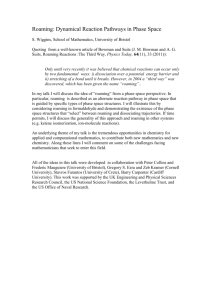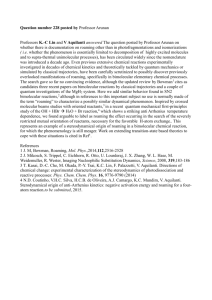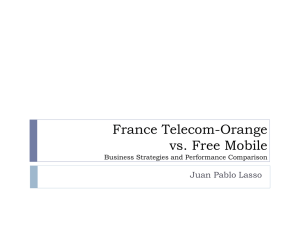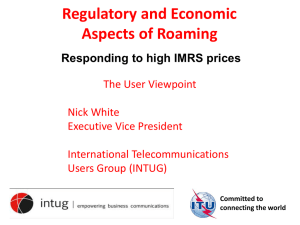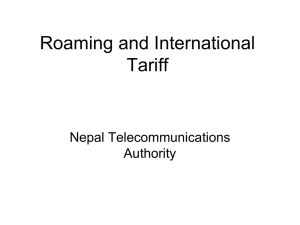Document No 6 9 May 2012 Original: English TELECOMMUNICATION
advertisement
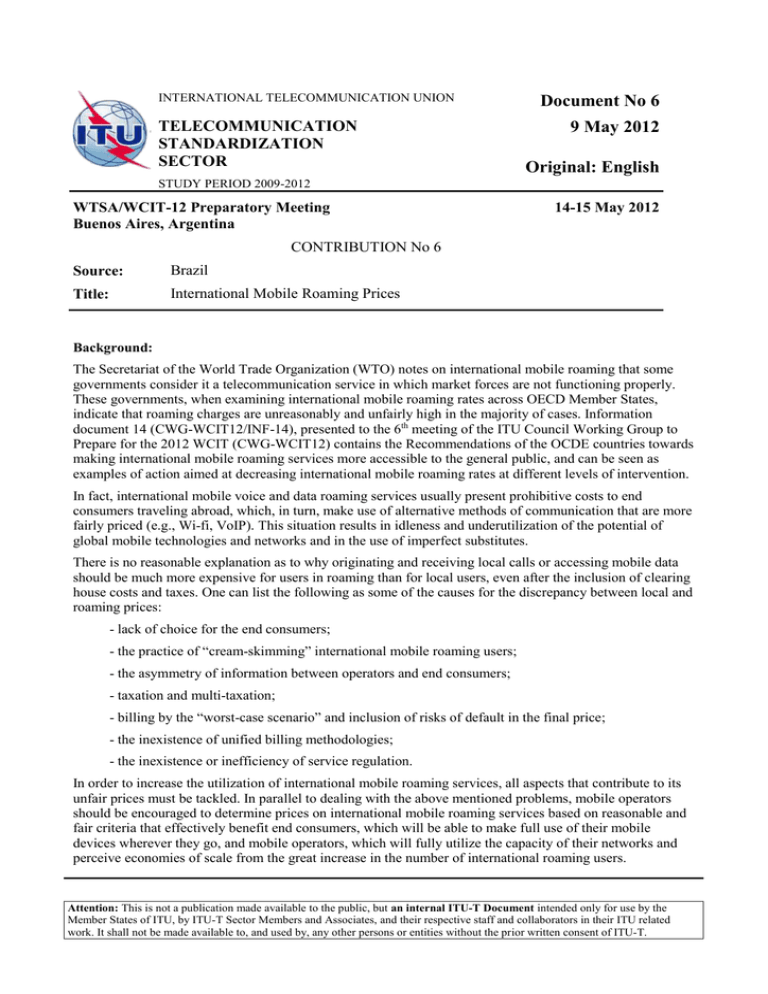
INTERNATIONAL TELECOMMUNICATION UNION TELECOMMUNICATION STANDARDIZATION SECTOR Document No 6 9 May 2012 Original: English STUDY PERIOD 2009-2012 WTSA/WCIT-12 Preparatory Meeting Buenos Aires, Argentina 14-15 May 2012 CONTRIBUTION No 6 Source: Brazil Title: International Mobile Roaming Prices Background: The Secretariat of the World Trade Organization (WTO) notes on international mobile roaming that some governments consider it a telecommunication service in which market forces are not functioning properly. These governments, when examining international mobile roaming rates across OECD Member States, indicate that roaming charges are unreasonably and unfairly high in the majority of cases. Information document 14 (CWG-WCIT12/INF-14), presented to the 6th meeting of the ITU Council Working Group to Prepare for the 2012 WCIT (CWG-WCIT12) contains the Recommendations of the OCDE countries towards making international mobile roaming services more accessible to the general public, and can be seen as examples of action aimed at decreasing international mobile roaming rates at different levels of intervention. In fact, international mobile voice and data roaming services usually present prohibitive costs to end consumers traveling abroad, which, in turn, make use of alternative methods of communication that are more fairly priced (e.g., Wi-fi, VoIP). This situation results in idleness and underutilization of the potential of global mobile technologies and networks and in the use of imperfect substitutes. There is no reasonable explanation as to why originating and receiving local calls or accessing mobile data should be much more expensive for users in roaming than for local users, even after the inclusion of clearing house costs and taxes. One can list the following as some of the causes for the discrepancy between local and roaming prices: - lack of choice for the end consumers; - the practice of “cream-skimming” international mobile roaming users; - the asymmetry of information between operators and end consumers; - taxation and multi-taxation; - billing by the “worst-case scenario” and inclusion of risks of default in the final price; - the inexistence of unified billing methodologies; - the inexistence or inefficiency of service regulation. In order to increase the utilization of international mobile roaming services, all aspects that contribute to its unfair prices must be tackled. In parallel to dealing with the above mentioned problems, mobile operators should be encouraged to determine prices on international mobile roaming services based on reasonable and fair criteria that effectively benefit end consumers, which will be able to make full use of their mobile devices wherever they go, and mobile operators, which will fully utilize the capacity of their networks and perceive economies of scale from the great increase in the number of international roaming users. Attention: This is not a publication made available to the public, but an internal ITU-T Document intended only for use by the Member States of ITU, by ITU-T Sector Members and Associates, and their respective staff and collaborators in their ITU related work. It shall not be made available to, and used by, any other persons or entities without the prior written consent of ITU-T. -2- Proposal: To include the following provisions in Article 6, “Charging and Accounting”, of the International Telecommunication Regulations: “Member States shall encourage Operating Agencies to establish international mobile roaming prices based on the principles of fairness, reasonability, non-discrimination and similarity to prices applied to local users of the visited Operating Agency.” __________

